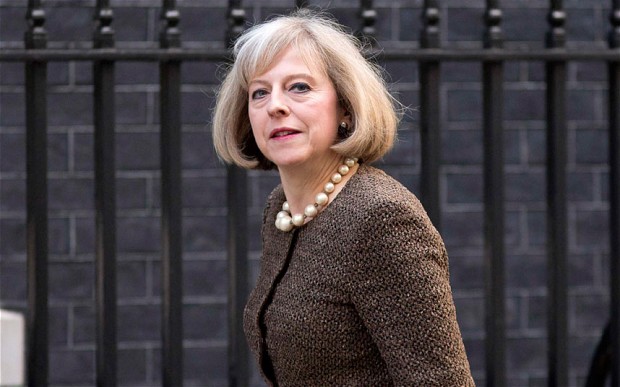This post has already been read 2381 times!
British Prime Minister Theresa May on Wednesday survived a confidence vote by her own MPs but lost the support of one third of her colleagues, signalling the battle she still faces to get her Brexit deal through parliament.
May won the backing of 200 Conservative lawmakers, but 117 voted to oust her — and only after she conceded she would step down before the 2022 election.
“I’m pleased to have received the backing of my colleagues in tonight’s ballot,” she said outside her Downing Street office after the result was announced.
“A significant number of colleagues did cast votes against me and I’ve listened to what they’ve said.”
She said she wanted to “get on with the job of delivering Brexit”, and to see “politicians on all sides coming together”.
The result, announced after a secret ballot, was met with huge cheers from May’s supporters gathered in parliament, while the pound rose on the news.
But leading Brexit rebel Jacob Rees-Mogg, one of at least 48 Tory MPs who triggered the vote by writing a letter of no confidence in May, said it was a “terrible result”.
 AFP / DANIEL SORABJIThe Evening Standard newspaper led with May’s vow to win the confidence vote
AFP / DANIEL SORABJIThe Evening Standard newspaper led with May’s vow to win the confidence vote
“She ought to go and see the queen and resign urgently,” he told the BBC.
Brexit figurehead Nigel Farage tweeted that May “limps on to her next failure, the deal won’t pass and the real crisis is close”.
Rees-Mogg and other eurosceptics hate the divorce deal May agreed with the EU last month, which they fear risks tying Britain to the bloc for years after Brexit on March 29.
The confidence vote followed her decision on Monday to postpone a planned vote in the House of Commons on the text, because she feared a crushing defeat.
She has promised to hold that vote by January 21 — when she may yet still lose, plunging the Brexit process into fresh crisis.
– Irish warning –
May heads to Brussels on Thursday for a pre-planned EU summit, where she will press fellow leaders to give her something to help sell the Brexit deal to sceptical MPs.
Many Conservatives, and the Northern Irish Democratic Unionists (DUP) who prop up the government, fear an arrangement to keep open the Irish border could see Britain trapped in an endless customs union with the EU.
 AFP / Tolga AKMENThe result, announced after a secret ballot, was met with huge cheers from May’s supporters gathered in parliament, while the pound rose on the news
AFP / Tolga AKMENThe result, announced after a secret ballot, was met with huge cheers from May’s supporters gathered in parliament, while the pound rose on the newsBut while EU leaders expressed sympathy for her difficulties, they firmly rejected any attempt to renegotiate a Brexit deal that was only secured last month after 17 months of talks.
German Chancellor Angela Merkel said on Wednesday she still “has hope for an orderly exit” but “no intention to change the exit agreement”.
Irish Prime Minister Leo Varadkar had a similar message after a call late Wednesday with European Commission President Jean-Claude Juncker.
His office said the pair “agreed to work to provide reassurance to the UK (but) the agreement cannot be reopened or contradicted”.
– ‘Enough to cling on’ –
MPs and ministers had rallied round May ahead of the vote, and finance minister Philip Hammond said May’s victory would unite the party and “flush out the extremists”.
But in a private meeting with MPs before they cast their ballots, she acknowledged the weakness of her position by setting a limit on her own leadership, lawmakers said.
“It is not her intention to lead the party in the 2022 general election,” Solicitor General Robert Buckland told the BBC afterwards.
May is now immune to further Conservative confidence votes for a year, but if defeated on her Brexit deal, her government could still face a confidence vote in parliament.
Simon Hix, of the London School of Economics, said Wednesday’s result was “enough to cling on, but 117 against her means the Commons arithmetic on Brexit is now even tougher”.
Labour’s Brexit spokesman Keir Starmer said it showed the “Tory civil war… is far from over”, adding: “More trouble ahead.”
The delays to the Brexit deal have prompted both the EU and Britain to step up preparations for the potentially disastrous scenario where there is no agreement at all.
[AFP]



